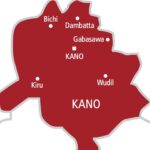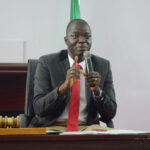If the joint Nigeria Labour Congress [NLC] and Trade Union Congress [TUC] general strike and protest go ahead this morning, as seems very likely, who will sit down and calculate its cost to the public treasury, to businesses large and small, to families and to workers themselves? I have an idea: it depends on how long the strike lasts, how total it is, and how disruptive the protests are to economic and social life of Nigerians.
Two years ago when we had four days of public holiday within one week, some economists calculated that the national economy lost N1.7 trillion due to lack of work. Trust Nigerians; one local wag quickly responded, “If we lost N1.7 trillion this week because there is no work, where is the N1.7 trillion of last week when there was work?” Some Nigerians are bound to say that they did not enjoy any benefits when there was no strike, so why should strike make things worse?
If this week’s strike and street protests last several days and approach even half the level of the disruption that the Occupy Nigeria protests of January 2012 had, then the cost could top many trillions of naira. Considering that government is trying to save about two trillion naira from removal of subsidies from both fuel and electricity tariffs, it could end up paying two or three times more than the amount it “saved” from its recent deregulation policies.
Only that, it is not government alone that will pay the stiff price. Businesses big and small will also pay a heavy price in lost revenues, unshipped goods, rotten perishable products, idle workforces and cancelled orders. Public sector workers may not pay a heavy price because their salaries could still flow despite the strike, maybe with some delays. Afterall, public sector salaries were paid during all the lockdown period, which became a kind of jolly good paid holiday.
Not so for workers in big businesses; the employers lost so much money that they cut either the pay or the work force. Worst hit were artisans, labourers, commercial drivers, private school teachers, self-employed professionals and market women whose incomes were virtually wiped out by the pandemic and lockdowns. All such men and women were bound to say when they heard of a general strike so soon after the lockdowns, “No! Not again!”
Big Labour is not unaware of this dilemma. Nigeria Governors Forum’s [NGF] chairman Dr. Kayode Fayemi warned labour leaders at the weekend that its members, ordinary Nigerians and the national economy would all suffer if there is a general strike. He told the truth, but what else can labour leaders do? In the last four decades, especially under the leadership of Adams Oshiomhole, the labour movement in Nigeria gained a lot of credibility with the Nigerian public by fighting unpopular government policies, top of which is fuel price increase.
During the years of military rule, only labour had the might to stand up to the military rulers and call a general strike. Although human rights groups made a lot of notice, they lacked labour’s clout and could only stage small demonstrations. They, however, happily cashed in whenever labour called a strike and they often overshadowed labour leaders in the forefront of agitation and making fiery speeches at rallies. In January 2012 for instance, it was labour that started the protests when President Jonathan announced fuel price deregulation but CSOs hijacked it and began calling it Occupy Nigeria. When government reversed the fuel price hike, NLC called off the strike but some shocked CSO activists said, “It has gone beyond that! This is no longer an NLC issue!” Since the return to democratic rule, opposition political parties were supposed to lead the fight against unpopular economic policies but they ceded the role to labour.
This time around, labour is going into this strike with some uncertainty because in 2016 when it called a general strike to protest the hike in fuel prices from N97 to N145, there was widespread public apathy and the strike collapsed. Most probably it was because the Buhari Administration was then new, less than a year old, and quite popular in many places. Since then, a lot of water has passed under the bridge. Though it was re-elected last year, the Administration’s fervent support base appears to be on the wane. The men who in 2012 actively encouraged the strike and protests are now singing different tunes with respect to fuel subsidies. They are saying exactly what Jonathan Administration officials said then, that subsidies are “wasteful and unsustainable,” “benefit the rich more than the poor” and are “riddled with corruption.”
Minister of Information Alhaji Lai Mohammed, one of the loudest and most strident voices against Jonathan economic policies years ago, is now ardently defending the same policies and using almost exactly the same words that his former foes used. President Buhari himself is on the toughest spot with respect to the new tune. He famously said when he was opposition leader that he did not believe there was fuel subsidy, that it was only PDP chieftains that were stealing money in the name of subsidy.
Ok, since top Buhari Administration officials have converted to the subsidy reality, what is the new truth? Finance Minister Mrs. Zainab Ahmed said two weeks ago that government revenue dropped by 60% due to the pandemic, lockdowns and steep fall in international crude oil prices. Anyone who faces a 60% drop in revenue must reexamine all his previous political stance, including having to eat his words if necessary.
From all indications, what happened was this. Before the pandemic hit, government had a N10.6 trillion budget for this year. It expected to earn N8.4 trillion and borrow the rest to make up. Then came this 60% revenue drop. In June, in the middle of the pandemic, it revised the budget down to N10.3 trillion but expects to earn only N5.08 trillion. Government then ran to domestic and foreign lenders looking for N5 trillion to borrow in order to make up for the shortfall. The lenders are hard-nosed supply side economists, never known for pity. We could lend you money, they said, but not to finance wasteful aspects of your budget such as fuel and power subsidies. Government swallowed hard, accepted the conditionalities and took the loans it could get.
It had other options, to be frank. It could walk away and tell the creditors to take the loans and stuff it. It could then come home, reduce its workforce by 50%, cut every civil servant’s income by 50%, or even stop paying salaries whenever it does not have the money, as some state governments are doing. It could also adopt the Imo Formula of 1984 and say ok, whatever money we get, we calculate it as a percentage of our wage bill, pay every worker that percentage of his wages and he or she forfeits the rest. The only trouble with any of those measures is that the Administration may not survive to tell the tale.
Even that is only one part of the sordid story. Vice President Yemi Osinbajo said on Friday that government spent N1.7 trillion on electricity subsidy to supplement tariff shortfalls. Petroleum Products Pricing and Regulatory Agency [PPPRA] added that government spent N8.94 trillion between 2006 and 2015 on fuel subsidy. Two very important things were however not said. With respect to power tariff, did the new genco and disco owners make the new investment they were committed to do, which would have made power supply more efficient, if not cheaper due to economy of scale? As for petrol, this subsidy issue arises only because we are importing refined fuel on a Gargantuan scale. Why is it impossible to make NNPC’s four oil refineries working again or even build new ones, in which case domestic fuel prices would no longer be at the mercy of international fuel price fluctuations?
Since there are no ready answers, many workers would ignore the personal costs and kuku join the strike.

 Join Daily Trust WhatsApp Community For Quick Access To News and Happenings Around You.
Join Daily Trust WhatsApp Community For Quick Access To News and Happenings Around You.


